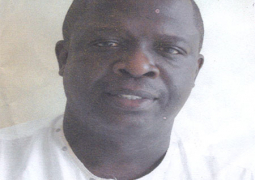In the Biblical understanding of a prophet, a prophet is defined as an individual who receives a message from God to be transmitted to a people, such as Israel. Sometimes God used a prophet to deliver personal message to an individual as in the case of King David whose actions displeased God. Nathan stood out as the prophet of God to King David.
Prophets don’t foretell the future but rather since they are instruments of God, they are only bearers of the word of God. Sometimes what one particular prophet may say bears reference to a future occurrence but that does not necessarily mean the future was predicted by the prophet. God through a prophet may deem a necessary future occurrence to happen only that the prophet through his word may offer a warning. When the people of Nineveh were addressed by God through the prophet Jonah they obeyed and as a consequence they were spared. The people of Nineveh were reminded by Jonah of God’s displeasure and the consequence that goes along with it and they did what was expected of them.
The nature of prophecy is that the word brought forth is the word of God. The prophet will never in the true sense of the word claim to own and speak the word that he or she speaks. The word he always proclaims is the word of God and that is why the prophet says: “thus says the Lord”. The purpose of prophecy is to make a course correction or to straighten things that take place in society. A prophecy is identified in like manner or it is not a prophecy. Prophecy was not the task of male persons only. God did not choose men only but women as well. Out of the 55 historically known prophets 48 were men. Thus the seven others were female or prophetesses such as Sarah, Miriam, Deborah, Hannah, Abigail, Chuldah and Esther.
Those who bear the word of God, called prophets were ordinary men and women. They did not necessarily have to have major qualifications or credentials. God chose them as his instruments. They willingly responded to God’s call and so carried out his will. As a consequence of what they were meant to do, i.e. to carry God’s word they suffered the consequences. Moses was not respected by the Egyptian Pharoah and so refused him to let his people go. He suffered being derided and refused to have what he wanted. The prophet Amos did not have an easy life. He was summoned to leave the northern part to Israel to return to the South where he was from. He was denied to preach any longer in the North. Isaiah and Ezekiel had to live in exile away from home and experienced torment and pain.
In the New Testament persecution, hardship and later death by being beheaded came into the life of the bold John the Baptist. John had to tell Herod the King of his sin and suffered being beheaded and he died. Lastly the apostles especially Paul, the greatest preacher of New Testament times suffered hardship of being ship wrecked, imprisoned and beaten up.
Every prophet of God that worth the salt of being prophet bears the consequences of prophecy. Like gold they are always tested to see their reliance on God and commitment to their task. No prophet or bearer of the word of God should fear being misunderstood, abused imprisoned or threatened. God’s word is always the cause of prophets, prophecy and its consequences. God’s word must always be preached in season or out of season without fear or favour.
Read Other Articles In Article (Archive)

Reliable Energy is Essential to National Development -DPS Njie
Apr 1, 2009, 5:50 AM


